Each communicating node in the Tegis ecosystem is designed to meet specific needs and guarantee efficient and simplified lighting points management. These solutions enable not only remote setting and control from the Tegis Web platform, but also seamless interconnection between equipment, for more efficient management of public lighting infrastructures. With our wide range of communicating nodes, we can help you choose the solution best suited to your needs, your existing infrastructure and your requirements:
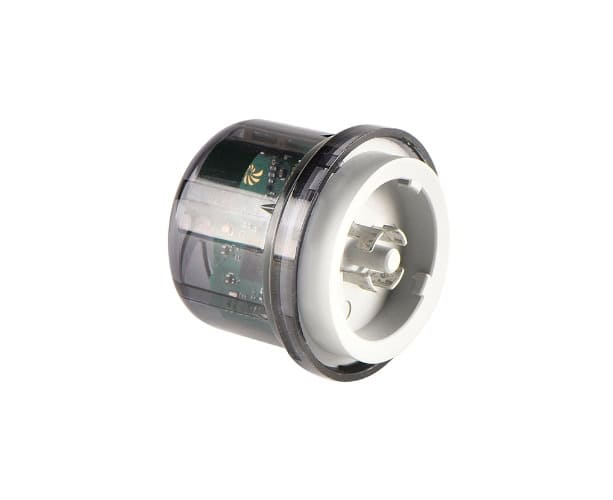
The Zhaga standardized communicating node – TZX
The TZX is a radio-frequency communicating node for intelligent street lighting management.
- It can be installed on any type of standardized luminaire equipped with Zhaga connectors.
- Combined with the Tegis control unit and the RF extension module, the TZX can be used to control and monitor light points.
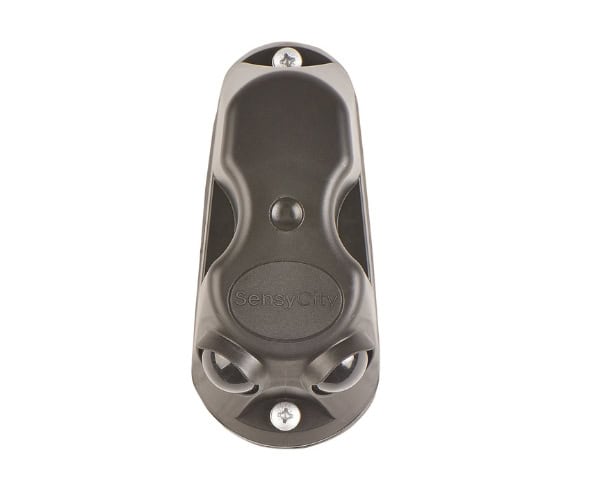
The SIR detector communicating node, for responsible and responsive lighting!
The SIR detector, for installation on public lighting masts, is an intelligent motion sensor-based detection system for pedestrians and cyclists.
- Instantaneous wireless communication between light points is secured.
- The detection module’s integrated power supply makes it easy to wire directly to the lighting poles.
- In conjunction with the Tegis control unit and RF extension module, the SIR can be used to control and monitor the light point, in addition to its main detection functions.

The NOD receiver node, for instant and flexible control!
As part of the SensyCity detection ecosystem and/or the Tegis smart management ecosystem, it maximizes energy savings while preserving safety and the night-time environment.
The NOD receiver, for installation on public lighting masts, is a device that receives radio information from a SIR detector or RF extension module:
- Instantaneous wireless communication between light points is secured.
- The NOD raises the lighting level of the light point on receipt of radio information from a SIR detector (adjustable level and duration).
- Combined with the Tegis control unit and RF extension module, the NOD controls and monitors the light point.
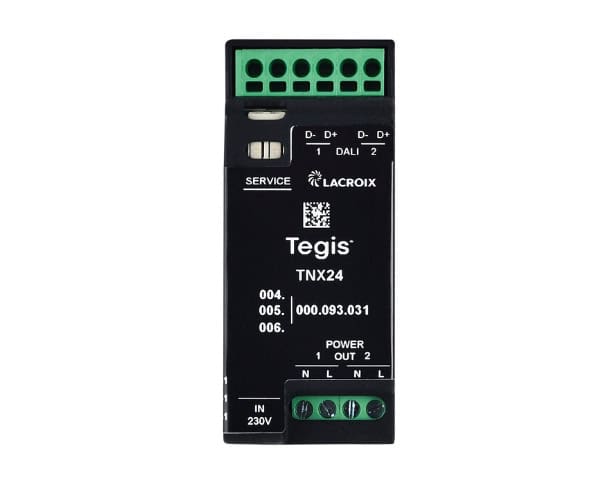
The TNX24 communicating node, for seamless lighting control!
This node can easily transform the public lighting network into a permanent power supply network, without the need for civil engineering, while offering connected management of the cabinet and lighting points, as well as third-party services when combined with the TRX (festive lighting, recharging stations, environmental sensors, etc.).
Positioned at the foot of lighting pole in junction boxes, TNX24 communicating nodes are controlled by Powerline Communication (PLC). This wired PLC communication uses the existing electrical network to transmit data, guaranteeing stability, security, robustness and homogeneous coverage unaffected by physical obstacles or interference.
- Each node acts as transmitter, receiver and repeater, for reliable and robust communication to all light points equipped with TNX24 nodes.
- The TNX24 node is compatible with all DALI control gear. It is equipped with 2 DALI outputs, and can control from 1 to 4 luminaires per output.
- Power consumption is measured for all lighting points connected to the TNX24 node.
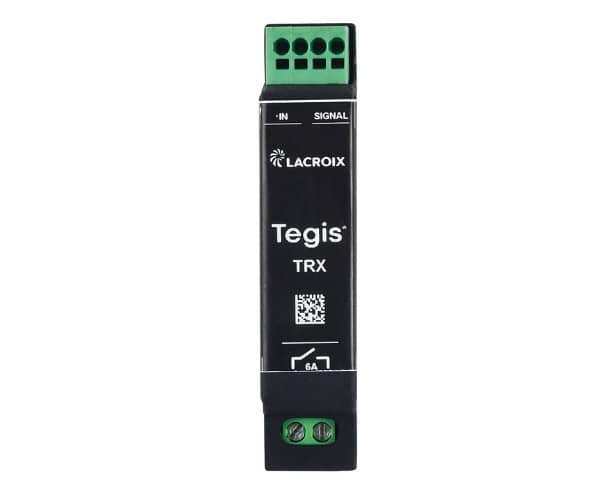
The TRX, an intelligent relay to optimize management of third-party services!
The TRX relay is positioned at the foot of the street lighting poles, in the junction box, and must be used in conjunction with the TNX24 communicating node.
- The TRX relay controls and monitors third-party services supplied by the public lighting network.
- Combined with a TNX24 communicating node, power consumption is available for the third-party service (festive illumination, video protection camera, etc.).
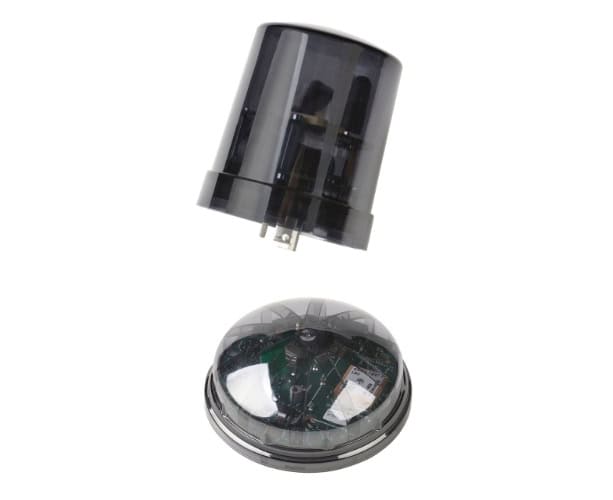
SLC Zhaga and SLC NEMA standardized communicating nodes, simplified control and monitoring
Zhaga or NEMA SLC (“Smart Lighting Controller”) nodes are standardized connected nodes compatible with all luminaires with Zhaga or NEMA receptacles.
- The Zhaga SLC node controls and monitors its light point.
- The SLC NEMA node controls, monitors and provides information on luminaire energy consumption. It is equipped with a relay with 5A breaking capacity.
- Each node is compatible with all DALI protocol equipment.
- Each node receives, transmits and repeats on the RF mesh communication network (2.4 GHz) using Wirepas technology. Each SLC node is unique and has its own specific address.

